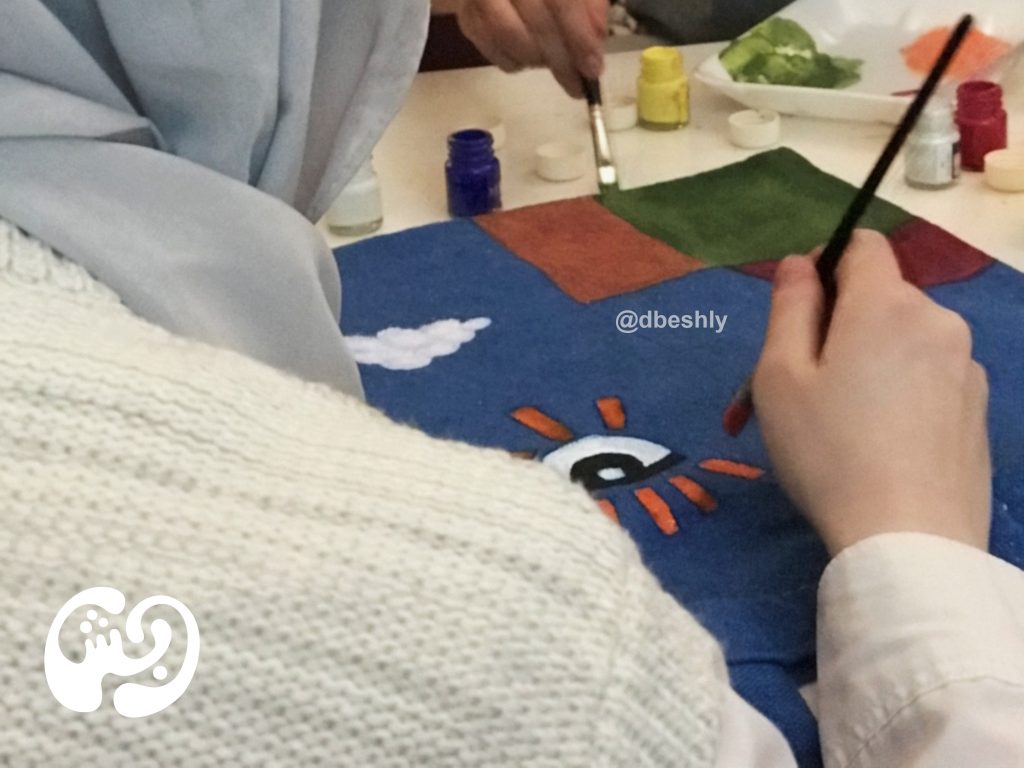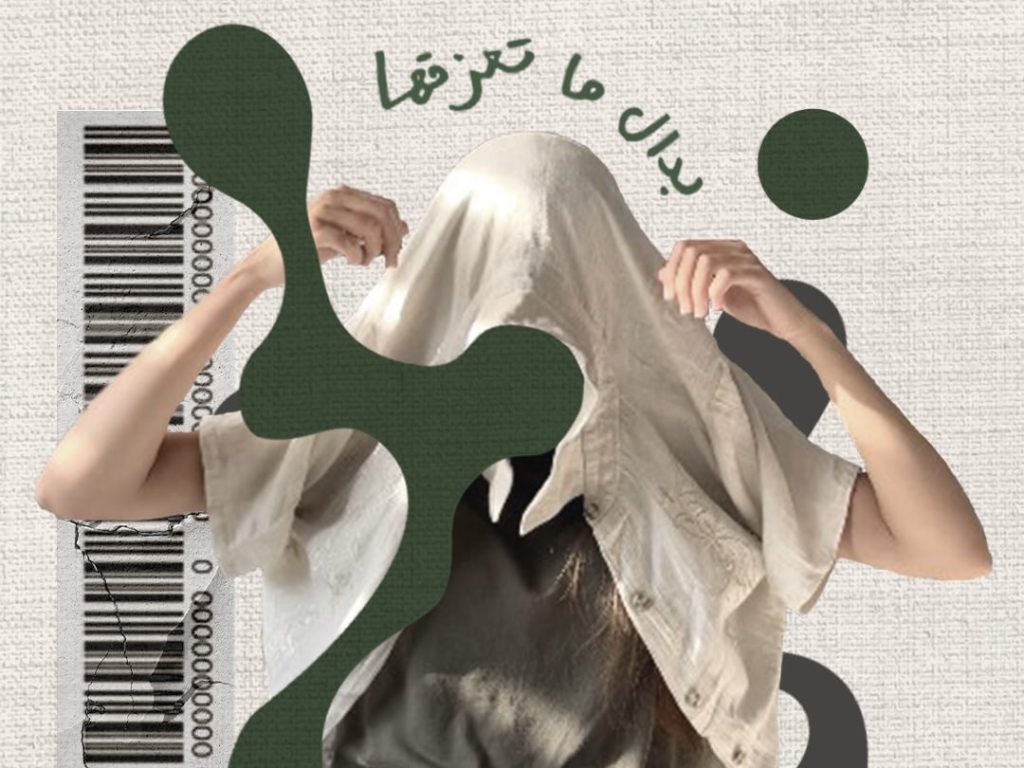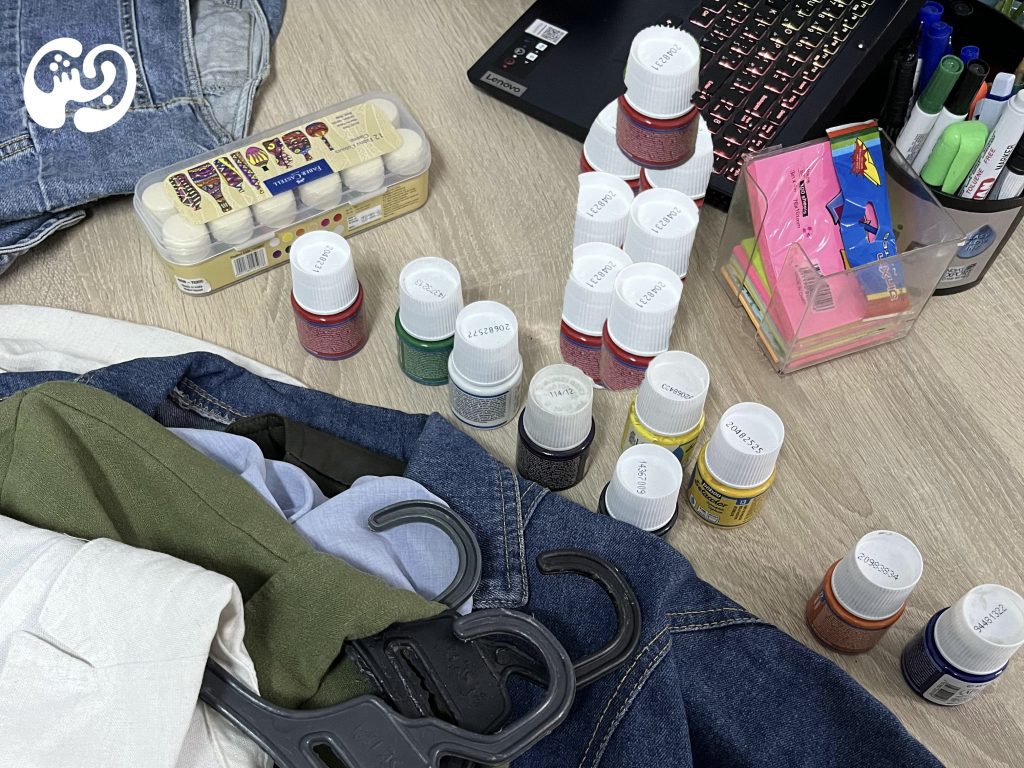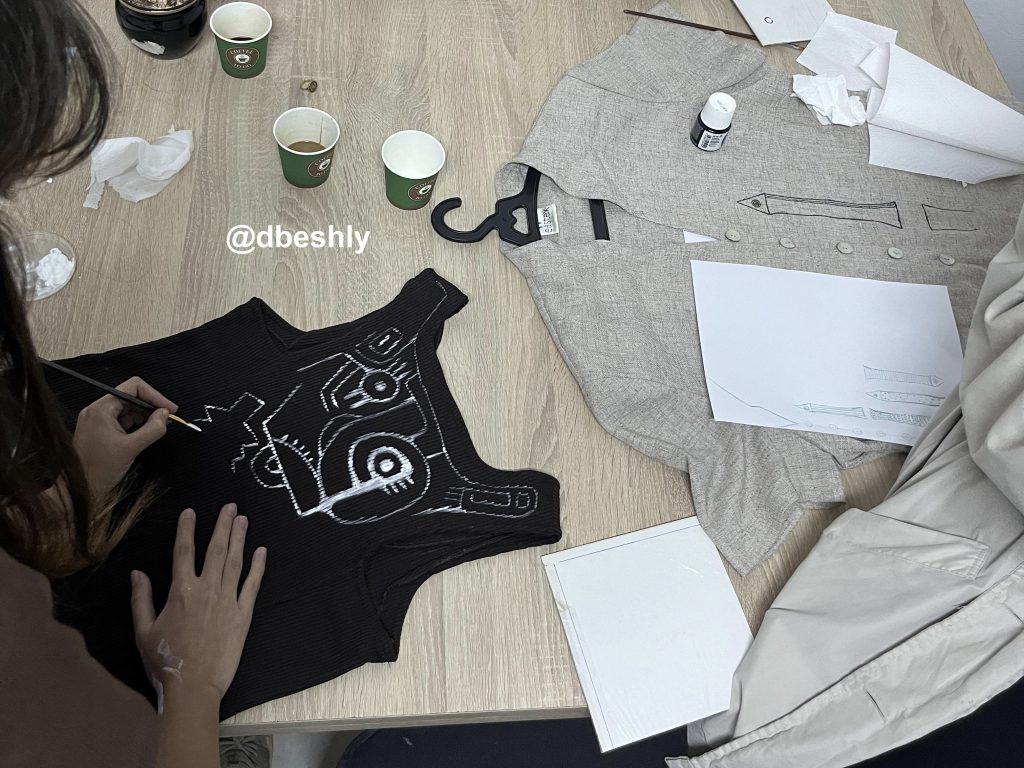The “Dbash” Initiative to Recycle Used Clothes in Libya
When Fatima al-Mughrabi, 23, saw that her friends often disposed of clothes they didn’t use anymore, she saw this as an opportunity to start the “Dbash” project which recycles old clothes with the aim of transforming consumer habits and promoting a culture of reusing and recycling in Libya.
By transforming discarded clothing into new arts and functional pieces, the project seeks not only to reduce textile waste, but also to provide economic opportunities for the local community. Fatima explained that the idea of reuse and sustainable clothing needs awareness.

A Pioneer Project
The basic concept of the Dbash project is to make the most of old clothes and give them new life by redesigning them in different ways. The idea of the project comes from a team of Libyan designers and artists who want to promote sustainability and environmental awareness in the community and establish a culture of buying and selling used clothes.
Fatima and her team of four collect old clothes and then carefully inspect and clean them. They then transform these clothes in different ways such as embroidering, redesigning, or drawing in order to transform old clothes into new and unique pieces.
Regarding her choice of the name “Dbash”, Fatima answers: “Dbash” is a term taken from the Libyan dialect, which means clothes or things. The name “Dbash” first symbolises Libyan culture and heritage and reflects the local identity of the project. Second, the name “Dbash” carries additional meanings related to the general concept of recycling and sustainability. Just as fabrics are reused to cover furniture and extend its life, the Dbash project aims to reuse and renew old clothes in a way that contributes to sustainability.
Fatima pointed out that many people buy clothes for a specific occasion and then leave them in the closet for long periods until they become useless when they become “old-fashioned”. She then explained that reshaping these clothes in a professional way will benefit the seller and the buyer, as the latter will get new clothes at half their market price.

Gaining Skills and Knowledge
Activities carried out by Dbash are not limited to recycling fabrics, but also include building skills by organising workshops that mainly target girls and women, who are the largest consumers of clothes and fashion and have a strong influence in society that can contribute to spreading the idea faster.
“In the workshops we organised, we asked participants to bring old pieces from their closets so that we can renovate them, we showed them how to add their own touch, then at the end of the training, we ask those who wish to participate to display their products at a fair we hold where they can sell their products at a discounted price,” Fatima explains.

Asaria Incubator: Fatima’s Entrepreneurship Journey, funded by the European Union
Fatima had the opportunity to join the Asaria Business Incubator, funded by the European Union, which supports the development of a thriving community of diverse entrepreneurs in Libya, seeking to provide them with resources, mentorship and expertise needed to turn innovative ideas into successful and sustainable businesses.
Entrepreneurs receive valuable training and resources from the incubator in the fields of business management, marketing, creative skills, in addition to having access to the coworking space, which contribute to the growth and development of the project and increase success opportunities.
Fatima and her team rely on social media to sell their products, where clothing sales have recently been on the rise. This young woman aspires to reach a larger segment of the population in the country, and to move from the online store to a physical store and enhance direct interaction between sellers and customers.
On the selection of the project at the Asaria Business Incubator, Ahmed Al-Amami, Project Manager at the incubator, said: “What distinguishes the Dbash project is its focus on recycling clothes in a sustainable way, with the idea of promoting a culture of reuse and sustainability in clothing as the first project of its kind. Given the growing interest in sustainability in Libya and the challenges related to solid waste, the Dbash project is unique and has great potential for success in this environment.”
Asaria focuses on supporting three types of projects: environmental, agricultural, and technical projects that incorporate the concept of sustainability. The incubator helps entrepreneurs support challenges by providing financial and technical support, appropriate workspaces, necessary advice and consultations, in addition to training and mentoring programmes.
Al-Amami also explained that there are more funding opportunities available through the support provided by the European Union. In fact, selected start-ups can obtain financing for up to 120,000 Libyan dinars and personal consultations of up to 6 hours per company. In addition, Asaria provides networking and relation building opportunities, encouraging participants to connect with other businesses inside and outside the incubator as well as to collaborate with government institutions.
Regarding the projects supported by the incubator and have become successful, Al-Amami said, “Currently, the incubator hosts 25 projects in the first track, and these businesses are mostly successful in the Libyan market.”
On the challenges entrepreneurs face, Al-Amami said that the most prominent challenges include bureaucracy, lack of financial support, lack of infrastructure, and political and security instability, which affect the business environment in Libya.

Culture of Reuse
The Dbash project showcases recycled clothes as a sustainable and economical alternative, especially in times of economic struggles. The project can provide affordable alternatives for people facing financial difficulties, and each recycled piece is uniquely designed and tailored.
“As the economy falters, recycling practices are back in the fore, teaching the community the culture of recycling and its basics, where it will be easy for everyone to make new pieces of their own from their own closet with innovative ideas,” explains Fatima.
Libya faces challenges in the field of waste management due to the lack of effective governance and adequate infrastructure, as waste is burned and landfilled on a large scale or disposed of in open ways, which not only degrades environmental quality but also poses health risks to the population. According to official statistics, Tripoli alone produces nearly one million tons of solid waste annually, of which plastic waste makes up a large proportion.
The Dbash project is a model for turning challenges into real opportunities. With its focus on recycling clothing and supporting sustainable fashion, Dbash effectively contributes to reducing the volume of waste in an innovative way, promoting a culture of sustainability in Libya.
This project not only provides solutions to waste problems, but also serves as a gateway to building a more sustainable future through circular initiatives that boost the local economy and support environmental innovation, including the reuse of materials into value-added products, thereby reducing environmental impact and stimulating sustainable economic growth through unwanted clothing.



























 Syria
Syria 


